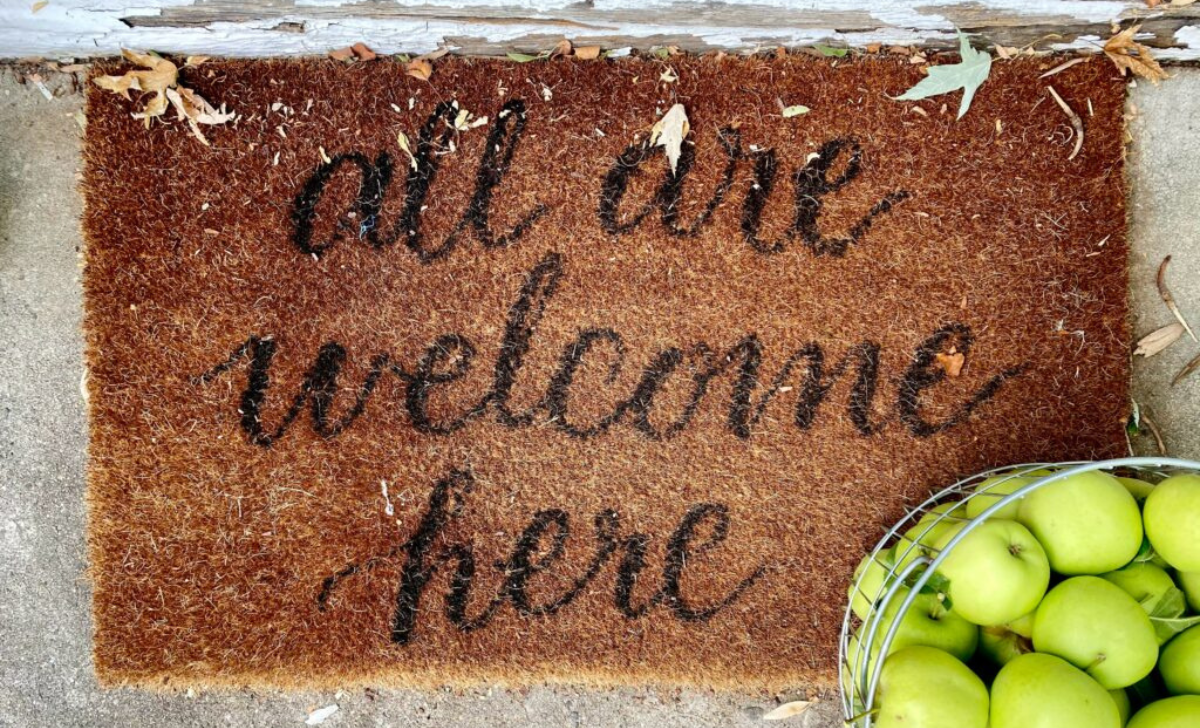
God‘s fingerprints are unmistakably found all over true hospitality. The word for “hospitality” is rooted in a compound Greek word meaning “love of strangers.” The Lord has called us to be people given to genuine hospitality for fellow believers and the strangers we encounter. Hospitality’s driving force is rooted in the unconditional love God lavished on us for redemption.
In the Old Testament, God‘s people were commanded to show hospitality, especially to the strangers and foreigners in their midst. This hospitality was to point them back toward their dependence upon God‘s unconditional love and care for them. They were once exiled strangers in a strange land whom God delivered out of slavery, sustained in the wilderness, and was “hosting” in their homeland. The hospitality we are called to practice should direct us to reflect on our dependence on God‘s unconditional love towards us as sinners. He has delivered us from the domain of sin, is sustaining us now, and is “preparing a place for us” to dwell with him for all eternity.
As believers, our lives should spill over with this kind of hospitable love in response to our Savior‘s love for us. Opening our church, homes, schedules, possessions, and lives are ways to share the love of Christ with fellow believers who are struggling and in need of encouragement and friendship. We are inviting them into deeper fellowship. With unbelievers, we are wanting to draw them into the family of God. While some of these kinds of gatherings can be planned in advance, many happen as we encounter people and their needs. God brings people to us to care for and encourage. Hospitality is not about hosting; it is about loving my neighbor as myself. It is an outward sign of a heart in love with God -transfixed by His love for me. Hospitality is a response of worship!
In Luke 10, immediately after one of the clearest teachings about hospitality in the Parable of the Good Samaritan, Jesus arrives in the village where Mary, Martha, and Lazarus live. Martha welcomes Jesus into her home; He was their dear friend. She wanted to care for Him well and might have noticed that He seemed road weary and in need of “a good home cooked meal.” He could also have had some hungry, tired disciples with Him. Well, being a woman who took God‘s command seriously about showing hospitality, she seems to have “rolled up her sleeves” and gotten busy. Hers was not grudging obedience, but she allowed her desire to serve Jesus in abundant hospitality to take priority.
Jesus lovingly rebukes her, not for her hospitality, but for her inverted priorities. Her ministry of care for Jesus had gotten disconnected from her worship and relationship with Him. Charles Spurgeon once said, “I may sometimes run with Martha to do what Christ needs of me, but I think I should more frequently sit with Mary to receive from Christ what I need from Him.”
We are all called to a life of worship and service. A holy tension should exist between our inner life of devotion and our outer ministry of service and good works. Neither one on its own is biblical or God-honoring. In James 2, we are asked to consider what good is it if someone says they have faith but no works to display or quantify their claim. In verses 15-16, James poses a practical example for hospitality (a fellow believer lacking basic necessities of adequate food and clothing), and those needs being met with superficial spiritual lip service only. He bluntly asks the pointed question of “What good is that?” He follows immediately with: “So also faith by itself, if it does not have works, is dead.” In verse 18 he writes: “I will show you my faith by my works.”
In conclusion, I return to one of Spurgeon‘s sermons. He has keen insights on this holy tension between service and devotion:
- To catch the Spirit of Christ, to be filled with Himself, this will equip us for godly labor as nothing else ever can…All Christians [should] put this one thing first and foremost…the power of deep piety is the one essential qualification for holy work… Restless service, which sits not at His feet, is but the clattering of a mill which turns without grinding corn; it is but an elaborate method of doing nothing…You lose your strength as a worker if you forget your dependence as a believer. Would to God we could be both active and studious, and both learn with Mary and work with Martha!
Emily Calloway, Hospitality Coordinator







